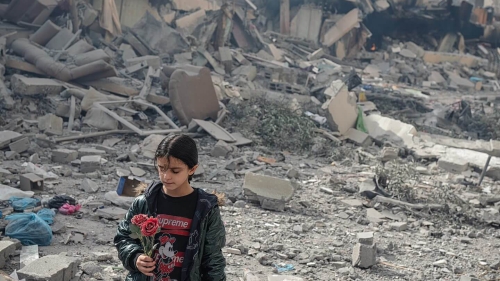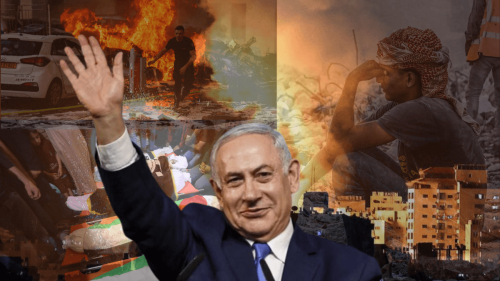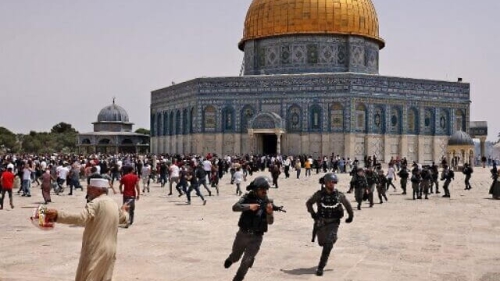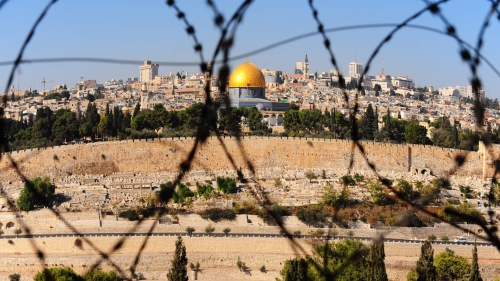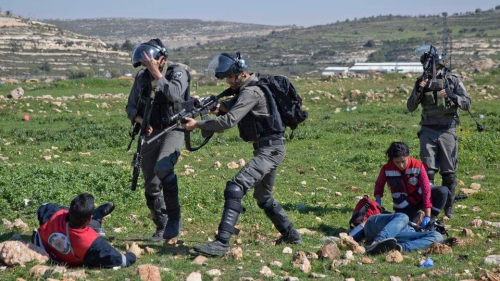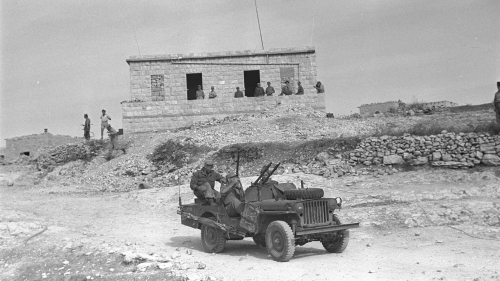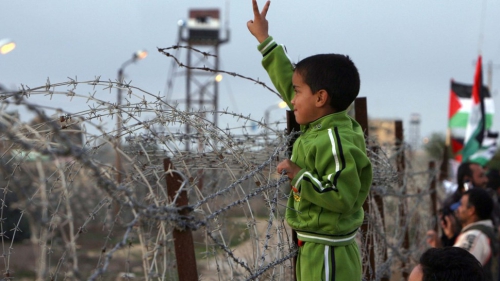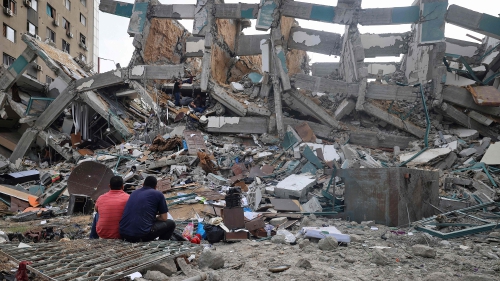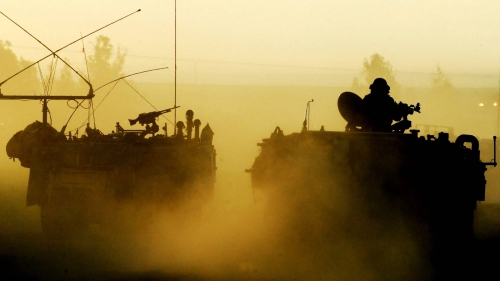Slaying the Cake-Vendor: The Palestinian Version of A Tragic Story
Mousa Abu Hilail, a thirty-year-old Palestinian man was shot and killed early Monday, Oct 25th in the northern part of Bethlehem. The killer was an Israeli solider whose job is to guard a Jewish shrine and settlers' enclave in what is hypothetically perceived as a Palestinian controlled area.
Mousa was neither a Hamas military commander nor a suicide bomber, but a shy young man who earned his family's living by selling cake and boiled eggs to students of the nearby University of Bethlehem.
"My nephew was killed in cold-blood," Mousa's uncle told the Palestinian newspaper, Al-Ayyam. He lamented, " Everyone knew Mousa. For years he sold cakes and posters to tourists."
Palestinians' demands to investigate the shooting was rejected by Israel. Even their proposition to use impartial investigators from Egypt or elsewhere was turned down by the Israeli authorities who insist on their interpretation of the story that Mousa was killed while attempting to stab a solider with a knife. Many Palestinian eyewitnesses were present, and many saw the killing take place. Unfortunately, their side of the story was largely overlooked and ignored.
Palestinian eyewitnesses told a reporter for the Palestinian newspaper, al-Hayat al-Jadeedah that Mousa, while walking near the military camp became terrified when an Israeli solider shouted at him to approach. According to the report the soldier also jeered at Mousa, commanding Mousa to give him a cigarette. This caught the attention of others standing by.
A Palestinian taxi driver told al-Ayyam that the shooting occurred immediately after Mousa reached to his pocket for his box of cigarettes.
An eyewitness by the name of Bilal, who described some of the events to France Press news agency, described how he ran toward the body, seconds after the shooting. The blood was still pouring from Mousa's neck and chest. "Mousa had no knife in his hand", said Bilal.
Speaking to al-Hayat al-Jadeedah, Lieutenant Farouk Amin, a top Palestinian official in the Palestinian-Israeli joint force in the area, confirmed the eyewitnesses' testimonies. "After we received the news, we hurried to the cited location. I found a young man laying while blood gushed out of him," said Amin. "I shouted at the soldiers: 'Why are you delaying his treatment?' My question however was received with rejection and apathy by the Israeli soldiers."
The part of the Israeli account of the incident concerned with the knife was much different according Amin. "An Israeli soldier came running from the northern side of the street while holding a knife in his hand. He quickly placed it by the body," explained Amin, quoted by al-Hayat al-Jadeedah. Amin questioned the soldiers about the knife and was told that it belonged to Amin. However in the report, Amin said there was no knife at the scene when he arrived.
Other eyewitnesses also told al-Hayat al-Jadeedah that the knife was indeed placed near Mousa after he was shot and that an Israeli solider rushed with a camera to document the phony claims.
As if this were not disturbing enough, Palestinian accounts of attempts to give medical attention to Mousa suggest more malfeasance on the part of Israeli soldiers. Eyewitnesses quoted in the Palestinian press said that Mousa did not die immediately from the gunshot wounds. In fact both onlookers and a Palestinian Red Crescent aid car tried to make their way to Mousa's body, only to be turned away by Israeli soldiers. According to Palestinian accounts, it took 45 minutes for an Israeli ambulance to reach the scene. Mousa unfortunately expired 40 minutes after the shooting after losing some three or four pints of blood.
Mousa will never know how much the students of the University of Bethlehem appreciated his cakes every morning. Hundreds of them, once they learned of Mousa's death, left their campus and rushed with rocks and angry waiving fists to the main street where the killing occurred. Twenty-five students were injured in clashes with Israeli soldiers. Two remain in critical condition and one lost one of his eyes.
Mousa's humble handcart and warm face will not be seen anymore, but the Israeli soldiers' flags, the settlers and their automatic rifles shall always be there to provoke fear in the heart of Bethlehem.






